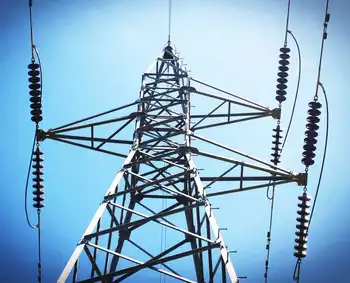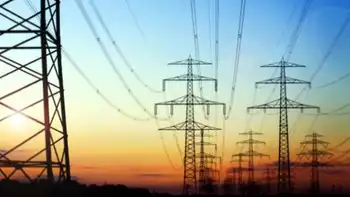BC Hydro suspends new crypto mining connections due to extreme electricity use

High Voltage Maintenance Training Online
Our customized live online or in‑person group training can be delivered to your staff at your location.

- Live Online
- 12 hours Instructor-led
- Group Training Available
BC Hydro Cryptocurrency Mining Suspension pauses new grid connections for Bitcoin data centers, preserving electricity for EVs, heat pumps, and industry electrification, as Site C capacity and megawatt demand trigger provincial energy policy review.
Key Points
An 18-month pause on new crypto-mining grid hookups to preserve electricity for EVs, heat pumps, and electrification.
✅ 18-month moratorium on new BC Hydro crypto connections
✅ Preserves capacity for EVs, heat pumps, and industry
✅ 21 pending mines sought 1,403 MW; Site C adds 1,100 MW
New cryptocurrency mining businesses in British Columbia are now temporarily banned from being hooked up to BC Hydro’s electrical grid.
The 18-month suspension on new electricity-connection requests is intended to provide the electrical utility and provincial government with the time needed, a move similar to N.B. Power's pause during a crypto review, to create a permanent framework for any future additional cryptocurrency mining operations.
Currently, BC Hydro already provides electricity to seven cryptocurrency mining operations, and six more are in advanced stages of being connected to the grid, with a combined total power consumption of 273 megawatts. These existing operations, unlike the Siwash Creek project now in limbo, will not be affected by the temporary ban.
The electrical utility’s suspension comes at a time when there are 21 applications to open cryptocurrency mining businesses in BC, even as electricity imports supplement the grid during peaks, which would have a combined total power consumption of 1,403 megawatts — equivalent to the electricity needed for 570,000 homes or 2.3 million battery-electric vehicles annually.
In fact, the 21 cryptocurrency mining businesses would completely wipe out the new electrical capacity gained by building the $16 billion Site C hydroelectric dam, alongside two newly commissioned stations that add supply, which has an output capacity of 1,100 megawatts or enough power for the equivalent of 450,000 homes. Site C is expected to be operational by 2025.
Cryptocurrency mining, such as Bitcoin, use a very substantial amount of electricity to operate high-powered computers around the clock, which perform complex cryptographic and math problems to verify transactions. High electricity needs are the result of not only to run the racks of computers, but to provide extreme cooling given the significant heat produced.
“We are suspending electricity connection requests from cryptocurrency mining operators to preserve our electricity supply for people who are switching to electric vehicles, amid BC Hydro's first call for power in 15 years, and heat pumps, and for businesses and industries that are undertaking electrification projects that reduce carbon emissions and generate jobs and economic opportunities,” said Josie Osborne, the BC minister of energy, mines and low carbon innovation, adding that cryptocurrency mining creates very few jobs for the local economy.
Such businesses are attracted to BC due to the availability of its clean, plentiful, and cheap hydroelectricity, which LNG companies continue to seek for their operations as well.
If left unchecked, the provincial government suggests BC Hydro’s long-term electrical capacity could be wiped out by cryptocurrency mining operations, even as debates over going nuclear persist among residents across the province.











